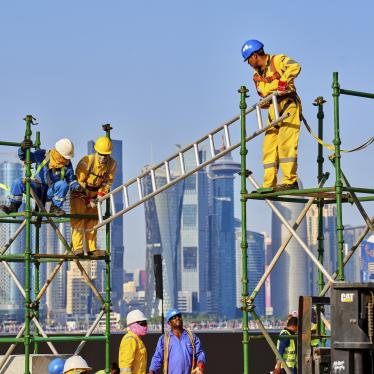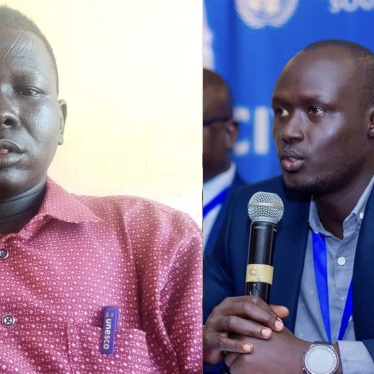FIFA has avoided reputational disaster by scrapping plans to expand the 2022 Qatar World Cup to neighboring human rights abusers Saudi Arabia, the UAE, Bahrain, Oman, or Kuwait.
Nine years after it won the bid to host the World Cup, and despite promising a host of reforms to address longstanding violations, Qatar’s human rights abuses persist. Allowing neighboring countries with similar – or worse – records to share hosting rights so late in the game would have indicated FIFA’s stated commitments to delivering a rights-respecting World Cup are no more than empty words.
FIFA President Gianni Infantino had announced he wanted to expand the 2022 World Cup from 32 to 48 teams, which meant current host Qatar would share hosting responsibilities with a Gulf neighbor. A FIFA feasibility study backing the plan alarmed the human rights community because it failed to include human rights abuses as a significant consideration or obstacle.
Under pressure from activists, fans, and sponsors, FIFA has amended its statutes, setting up a Human Rights Advisory Board and adopting a landmark Human Rights Policy that states, “Human rights commitments are binding on all FIFA bodies and officials.” New FIFA bidding requirements for the 48-team 2026 World Cup, awarded to Canada, the US, and Mexico, required bidders to map all human rights risks and provide a strategy to address them.
But with human rights defenders in jail or silenced by threats in Saudi Arabia, Bahrain, and the UAE, such consultation was impossible. As stakeholders, Human Rights Watch, Amnesty International, the Committee to Protect Journalists, and other colleagues briefed FIFA on human rights problems in the potential host countries and urged they rethink the expansion plan.
For all future World Cups, FIFA must consider in advance how to address exploitative labor systems that make migrant workers vulnerable to abuse and discriminate based on gender, sexual orientation, and religion; and how to guarantee rights to freedom of peaceful assembly, association, and expression.
The human rights community stood united in telling FIFA that expanding the World Cup in a hasty process that did not address current abuses would reward human rights abusers and set back the reform process under the UN Guiding Principles on Business and Human Rights.
The World Cup is the globe’s most watched sporting event. Future hosting arrangements should always address human rights as a key part of any game plan.









